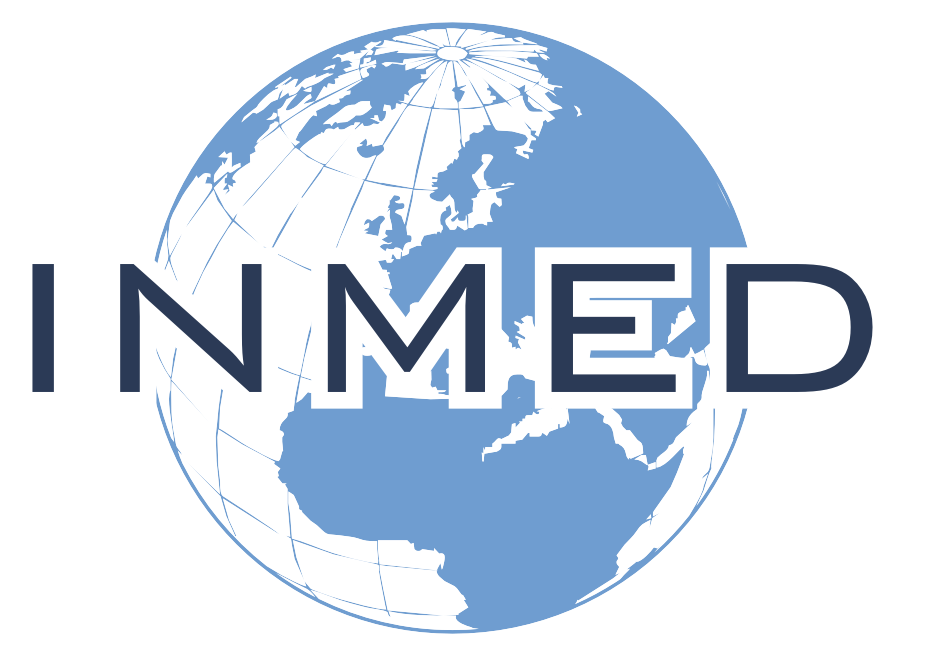Course Information
Epidemiology is the most fundamental of the health sciences. This course addresses introduction to epidemiology, measuring health and disease, epidemiology studies, basic biostatistical concepts, causation in epidemiology, epidemiology of non-communicable diseases, epidemiology of communicable diseases, clinical epidemiology, environmental and occupational epidemiology, and health policy and planning. This is comprehensive course is built around the provided textbook Basic Epidemiology (2nd ed) by R. Bonita, R. Beaglehole, T. Kjellström, and WHO; 2006.
At the completion of the INMED Epidemiology Course, learners will be able to demonstrate using analysis, case-studies and simulation the:
- Vision and achievements of epidemiology
- Primary measures of health and disease
- Types of epidemiology studies and their application
- Basic concepts of biostatistics and their application to research interpretation
- Establishing the cause of a disease
- Application of primary, secondary, and tertiary prevention
- Surveillance of and response to infectious diseases
- Analysis of natural history, prognosis, and treatment of disease
- Leading issues in environmental, occupational, and injury epidemiology
- Role of policy, health planning, and the planning cycle
Building upon the lessons below, learners will also critique assigned articles, participate in discussion boards, and complete assigned application exercises. All weekly assignments are due by Sunday at midnight.
WEEK ONE: INTRODUCTION TO EPIDEMIOLOGY
- What Is Epidemiology
- Epidemiology and Public Health
- Achievements in Epidemiology
WEEK TWO: MEASURING HEALTH AND DISEASE
- Defining Health and Disease
- Using Available Information
- Morbidity and Disability
WEEK THREE: EPIDEMIOLOGY STUDIES
- Observational Epidemiology
- Experimental Epidemiology
- Potential Errors in Epidemiological Studies
WEEK FOUR: BASIC BIOSTATISTICS CONCEPTS AND CAUSATION IN EPIDEMIOLOGY
- Displaying Statistical Information
- Summary Numbers
- Statistical Inference
- The Concept of Cause
- Establishing the Cause of a Disease
WEEK FIVE: EPIDEMIOLOGY OF NON-COMMUNICABLE DISEASES
- Scope of Prevention
- Levels of Prevention
- Screening for Disease
WEEK SIX: EPIDEMIOLOGY OF COMMUNICABLE DISEASES AND CLINICAL EPIDEMIOLOGY
- Burden of Communicable Diseases
- Chain of Infection
- Investigation and Control of Epidemics
- Normality and Abnormality
- Effectiveness of Treatment
WEEK SEVEN: ENVIRONMENTAL AND OCCUPATIONAL EPIDEMIOLOGY AND HEALTH POLICY AND PLANNING
- Environment and Health
- Exposure and Dose
- Assessing Risk
- Health Policy in Practice
- Health Planning Cycle
EPIDEMIOLOGY WEEK EIGHT: FINAL EXAM
The following are the minimum computing requirements for participating in this course. Students must have ready access to and be functionally proficient with:
- A personal computer with an up-to-date operating system and ample memory for downloads
- A web browser, preferably the most up-to-date version of Chrome, Internet Explorer, Firefox, or Safari
- Applications capable of opening Microsoft Word documents and of viewing PDFs
- An Internet connection, preferably high speed
- Capability of viewing YouTube and Vimeo videos
Education Methods
Learners will achieve the course competency objectives through the following educational methods:
- Assigned book and article readings
- Critical analysis
- Group discussions
- Essay Composition
- Simulation exercises
Evaluation Methods & Requirements For Successful Completion
Assessment of the learner’s performance will be based upon:
- Demonstration of the competency objectives using case-studies and simulation
- Completion of all Article Discussion Board assignments
- Achievement of ≥ 80% on the Epidemiology Exam
- Complete evaluation and credit claims forms at the course conclusion
Continuing Medical Education (CME) credit for the INMED Epidemiology Course is attained through satisfactory completion of the course requirements. Note: CME is not applicable to students or resident physicians.
Cost
There is no additional charge for Continuing Medical Education (CME) credit.
Accreditation Statement
Physicians
Institute for International Medicine is accredited by the Kentucky Medical Association to provide continuing medical education for physicians.
The Institute for International Medicine designates this other activity (live course and enduring material) for a maximum of 38 AMA PRA Category 1 Credit(s)™. Physicians should claim only the credit commensurate with the extent of their participation in the activity.
Accreditation Launch Date: February 1, 2024
Accreditation Termination Date: February 1, 2027
Other Healthcare Professionals
A certificate of completion indicating the number of AMA PRA Category 1 Credit(s)™ will be issued for completing this course. Certificates may be submitted to applicable state boards for recognition.
Disclosures
No persons in control of the content of this course have relevant financial relationships with ineligible companies.
| Nicholas Comninellis MD MPH DIMPH | No relevant financial relationships with ineligible companies to disclose |
| Joseph LeMaster MD MPH | No relevant financial relationships with ineligible companies to disclose |
| Fred Loper MD | No relevant financial relationships with ineligible companies to disclose |
| Timothy Myrick MD DTMH | No relevant financial relationships with ineligible companies to disclose |
| Leda Rivera | No relevant financial relationships with ineligible companies to disclose |
Tuition for the Epidemiology Course is $1,770 for both Master’s degree and non-Master’s degree credit.
The cost of this course offered outside of the United States may be different to account for local taxes and local regulation compliance.
For more information, please view our Cost page.
Joe LeMaster, MD, MPH



